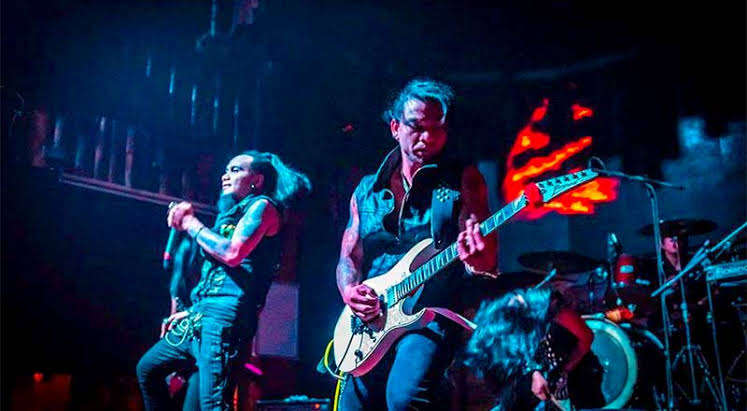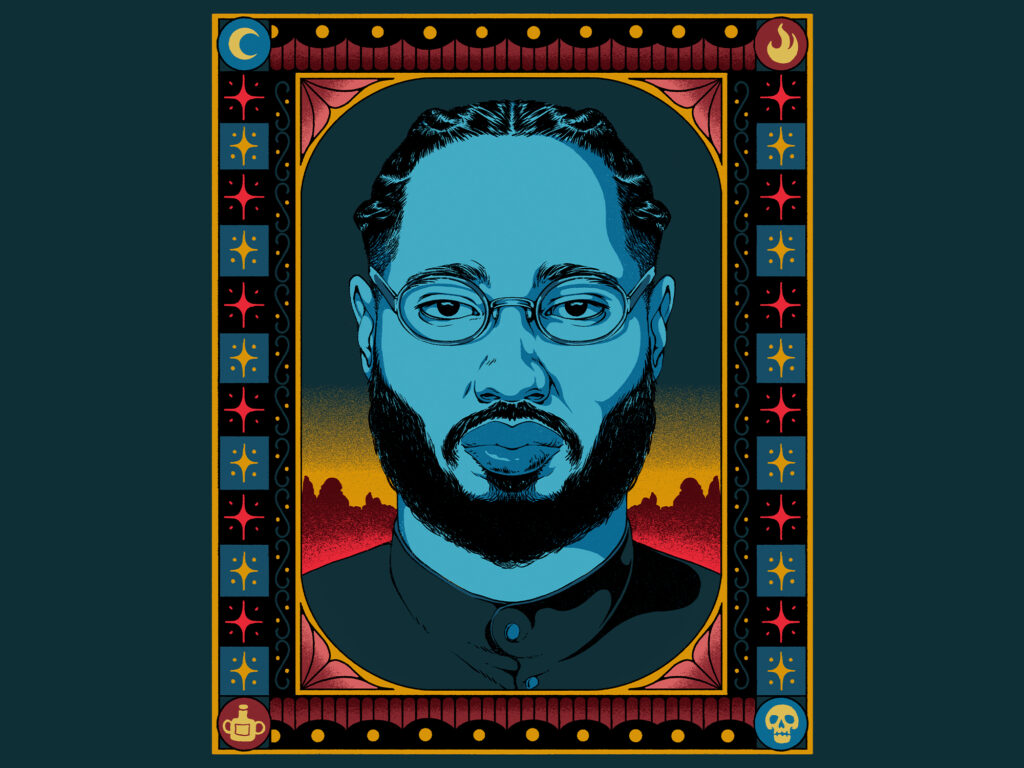
Ryan Coogler reflects on developing a story rooted in personal passions with his grand, IMAX-shot thriller, Sinners. The post Ryan Coogler: ‘I’m more confident in my film language than I am in my English’ appeared first on Little White Lies.
Oakland-born director Ryan Coogler is always conscious of his roots. With a filmography in which each work threads the needle between franchise legacy and personal struggle, his characters are usually in some kind of communion between the past, or with a previous generation (or both). One of the most touching moments of 2015’s Creed sees Coogler employ editing to convey the spirit of the main character’s father reaching him for a brief moment. 2018’s Black Panther takes things a step further and features a tangible realm for the protagonist’s deceased ancestors. His new film, Sinners – technically a vampire movie, but one that chafes against simple categorisation – is a sort of communication with his own family, via its Mississippi setting. The director spoke about the film’s origins and how it links with his own, as well as his ideas on genre and working with really big cameras.
LWLies: When did you first start thinking about Sinners?
Coogler: A long time ago. I think it was the first feature script I finished. I’ve long since lost it; it’s in a computer somewhere. But with this one, I knew I had to make something after Black Panther 2, and I was thinking about what I would do afterwards. And I know I had to do something fast, because that movie took so long. We got hit with some unspeakable tragedies, like losing Chadwick [Boseman], and the global tragedy of the pandemic. Tish (Leticia Wright) was injured, which delayed us quite a bit, and I was like, ‘I want to be done with this, I want to make something quick and something simple’.
I had an uncle who I was real close with – who was from Mississippi – pass away while I was in post on Creed. And he was big into blues music, and through him I kinda fell in love with the genre. When he passed, I would listen to songs to kinda remind me of him. I was in America’s South, in a city called Byron, Georgia, shooting a scene for Panther 2, and a rapper who I was listening to a ton, named Young Dolph, was murdered around the same time. I was thinking about the genre of rap, and how often I shout out like an artist I’m listening to, who I’m maybe the same age as, who I identify with, would lose their life in a situation. You can tell their music was haunting them, or they were trying to escape. I was like, ‘I need to take a break from rap for a little while’. Same with Young Dolph’s killing.
I had a conversation with a producer on my film, Nate Moore. I was lamenting to him, saying, ‘What kind of music is it where you’re listening to somebody trying to escape something, and it ends up taking them away anyway. Music where they’ve got it all figured out and it’s still happening.’ And he said, ‘Grunge music is like that. All my favourite artists have a lot of music about depression and addiction and trying to navigate it, and end up succumbing to it anyway.’ So I started listening to grunge around that time. And I was hearing a lot of blues riffs in it. It reminded me of listening to my uncle, and that was where the seeds of the movie came from. And as I got into writing it, I was realising there were some elements of this in a movie I was always trying to make, so it felt like I made it quickly.
Considering you had this in mind for a really long time, do you think you could have made this version of Sinners after Fruitvale Station?
No [laughs].
I was thinking about it in the context of it being your first film in a while outside of a pre-existing franchise like the Creed and the Black Panther movies, and I was wondering how those had some bearing on the process of making Sinners.
I think I couldn’t have executed the film to this quality when I was 28 years old, I just wasn’t there yet. Also, I’m just a different person now. I think I made Fruitvale when I was 27… I’m 38 now and this movie has characters in it that… It’s interesting. Because Creed is what I made right after Fruitvale, and Creed has characters that are my age. And then it has characters that are in their early seventies, your Stallones and your Phylicia Rashads, the characters they portray. And I could do that at that time. This film has characters that are my age now. I’m old enough to be making a movie about somebody in their late thirties and saying what that means. And also, this movie was hard. A lot of the technical aspects I learned on Creed, on the Panther films, I applied to this one… otherwise I would have been lost in the woods bro [laughs].
Could you tell me a bit about what those technical aspects were? Especially shooting on IMAX.
It’s funny, when we were gearing up, the biggest thing talked about with the IMAX cameras was the weight. But it’s actually a lighter camera than the other camera that we used. The IMAX camera is 20, 30 pounds lighter than the [Panavision] System 65 cameras – those were our sync sound cameras, our traditional movie cameras. Those cameras you can’t handhold, you can’t put on a Steadicam. They have to be studio mode – crane, sticks, dolly on the ground. And to go back to Fruitvale, it was a handheld movie. We had an ARRI 416, and the only scene we shot studio-style was a flashback. In all of my movies, I swing the camera round everywhere, so it was a massive learning curve to say, ‘Alright, we’re gonna walk over here,’ and we’re not [laughs]. Which is to say, those cameras are a hundred pounds, so you’re not walking nowhere.
I imagine that complicates planning things a bit.
The real issues are two things: ripping film through 15 perforations a second, so the roll is only live for somewhere between two and two-and-a-half minutes (if you’re shooting 24 frames a second). So you’ve got very short rolls, and if you shoot long takes, like I do often, you’re reloading quite often. And that takes time. We had an incredible crew, so they were doing it quickly, but it’s the waiting time.
I wondered if you could talk about how Sinners is taking a bit of a different approach to the vampire, and your desire to not necessarily lean on their cinematic iconography.
I think that the film is playing back to this about genres, right? A big part of commodifying things, a big part of human nature is to classify things. ‘This is original,’ or, ‘this is a franchise’, this is based on IP, this is not based on it… and when you really interrogate that concept, it becomes a little strange. Yeah there’s vampires in this movie, there’ve been vampires in a million movies. And yeah, you can be original all day, but also you have this element as a part of the movie that has been part of our human consciousness. In different cultures, for a while. And we were really excited to put our unique stamp on it, but at the same time, still make sure that people recognise what a vampire is. There are some visual things that are unique about these vampires in our movie, but I think more than anything these vampires fit into the themes of the film. You might not be able to take them out of Sinners and drop them into another vampire movie, they wouldn’t make sense there.
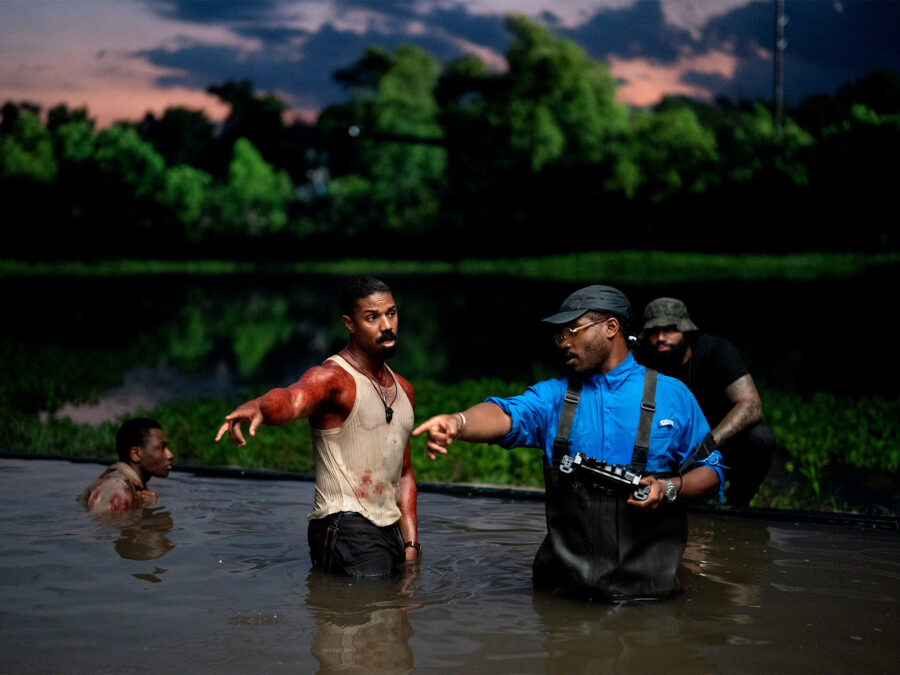
I remember your composer Ludwig Göransson describing using environmental sounds on the Fruitvale Station soundtrack, and I was thinking about his work on Oppenheimer which played with time signatures. Is there a particular ingredient which you were playing with for the score for Sinners? Especially with what you said about blues shaping the film.
Ludwig and I are old friends, we met while we were at film school. He was in a composer school, and I didn’t know jack shit about anything. So I asked him, ‘Are you a multi-instrumentalist?’ And if you know him, he fucks around a lot – he’s got a real unique sense of humour. I hadn’t known him well at the time, but his answer to me was, ‘No’, which was a lie (laughs). He said, ‘I don’t play a lot of instruments but I do play the guitar very well.’ And that was truthful. The reality of Ludwig is, he can’t play anything that requires you to breathe, but the only instrument he will claim to play is the guitar, because he’s that good at it. And this movie, it’s about a lot of shit but at its heart it’s about a guitarist.
And the score that he’s made is unbelievable. There’s been a few times during recording the score where his engineer turns to look at me, and he’s like, ‘This is the first time anybody’s ever done this.’ I’m really proud of what he’s done with this. The reality is Ludwig’s a guitarist because his father is a guitar teacher – that’s why he is what he is. And his father is a guitarist because he fell in love with American blues music. And he fell in love with it live, when those artists weren’t really allowed to tour in the United States, and they started to tour in Europe first. That’s when Ludwig’s dad saw those guys. He would tape them and learn how to play like them. And he taught his son how to play like them. So this is a personal movie for him too.
You talked about the personal connection – what did you want to evoke about those connections through Sinners?
Each movie for me is like an exercise in looking internally, to myself as a person, and finding a way to make that internal look cinematic and universal. Movies have enabled me to travel. Like, I didn’t have a passport until I went to film school. Football took me all over the country; that’s how I was able to travel. My parents weren’t travelling, we didn’t have the money for that. Filmmaking allowed me to see the world. I got my passport for my first film festival in Cannes when I was in film school, and got a chance to travel to the UK to promote Fruitvale for the first time. And Panther, that meant travelling to Africa, which I have an ancestral connection to.
But truly, I’d been all over the world, but I’d never been to Mississippi, which is where I mentioned my uncle was from, but also, my maternal grandfather was born and raised there before he moved to Oakland. So this place was so connected to my history. And with this film that would be the goal, in studying this era of my country’s history, that’s very glossed over. For me, the film very quickly became an opportunity to make something really entertaining, and fun and cinematic and theatrical, but also it became a vehicle for reaffirming the humanity of the people at that time. Because that’s what they were doing when they invented this music. It was an affirmation of humanity at a time when that was being denied. And there’s obviously a sadness in that, but also an incredible beauty.
I’d like to mention Nickel Boys.
Oh yeah, beautiful movie.
There’s been a conversation around it creating a new Black film grammar, with an experiential perspective. What you’ve said about Sinners, and searching for that humanity, made me wonder what your perspective might be on what a ‘Black film grammar’.
Boy, was I blown away. Not only by what the film said, but also hearing RaMell [Ross] talk about it; he’s a great communicator. The decisions are made when communicating something through film language. And for me, it is a language and I’m fluent in it; that’s why I have a job, right? And folks can debate how well or not I speak it or whether they like what I say with it, but And truthfully, I’m actually more confident in my film language than I am in my English. I’m relieved when I have the opportunity to make a movie because I think that I do that better than I can describe. But that being said, this concept of Black film grammar… I have a double consciousness about it.
How so?
Because I know that you can make a very convincing argument that genres are a sentimental function of racism. It wasn’t that long ago where two musicians could sing the same song and one would be called a ‘race record’, and one would be called ‘bluegrass’. There is a part of me that wants to claim what RaMell is doing for my own culture, absolutely; that’s us, that’s a Black film, a Black filmmaker, a hundred percent. And at the same time, both things can be true: that’s a filmmaker; that’s film language; that’s something monumental. I think everybody can take something from that, because it worked for us. And that’s how things have always been. But now we have the ability to be able to say where it started, and maybe demand equity.
I think there’s a tension between wanting to develop a voice to say something in particular, but also not wanting to be strictly defined as any one thing, I get that.
Yeah, and I think that tension is a big part of why art from Black artists can be so transformative. Because that’s a tension that we’re navigating constantly.
The post Ryan Coogler: ‘I’m more confident in my film language than I am in my English’ appeared first on Little White Lies.
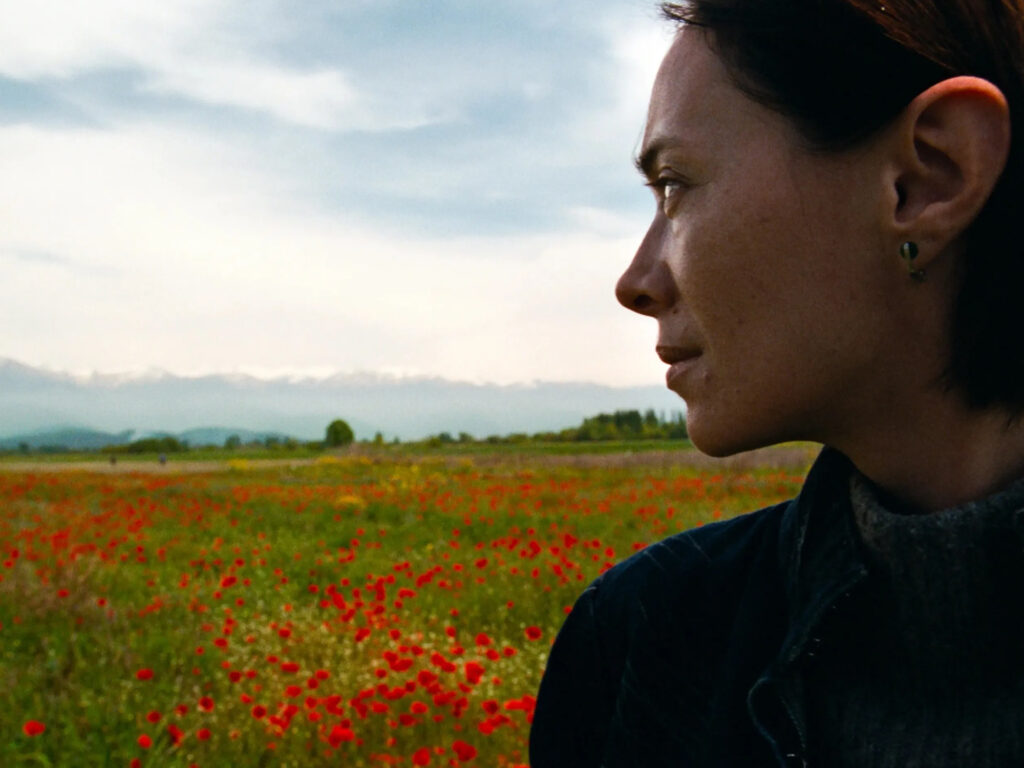 Bodies, Babies and Birth Control in April and All We Imagine as Light
Bodies, Babies and Birth Control in April and All We Imagine as Light
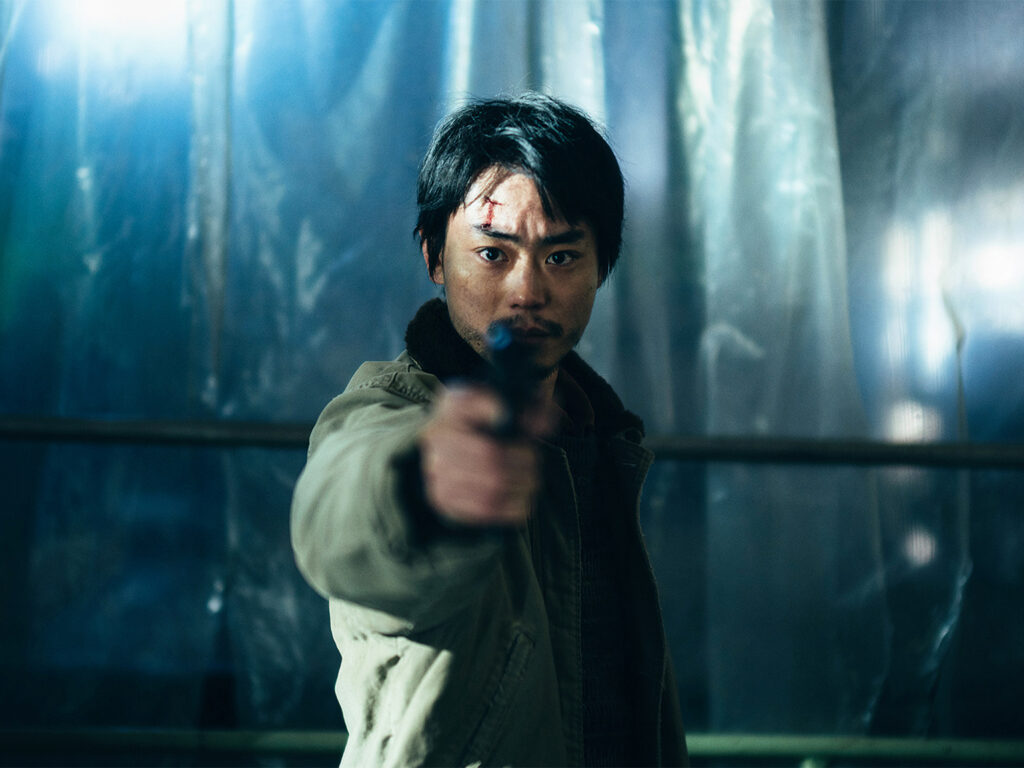 Cloud review – all-time bleakest episode of Only Fools and Horses
Cloud review – all-time bleakest episode of Only Fools and Horses
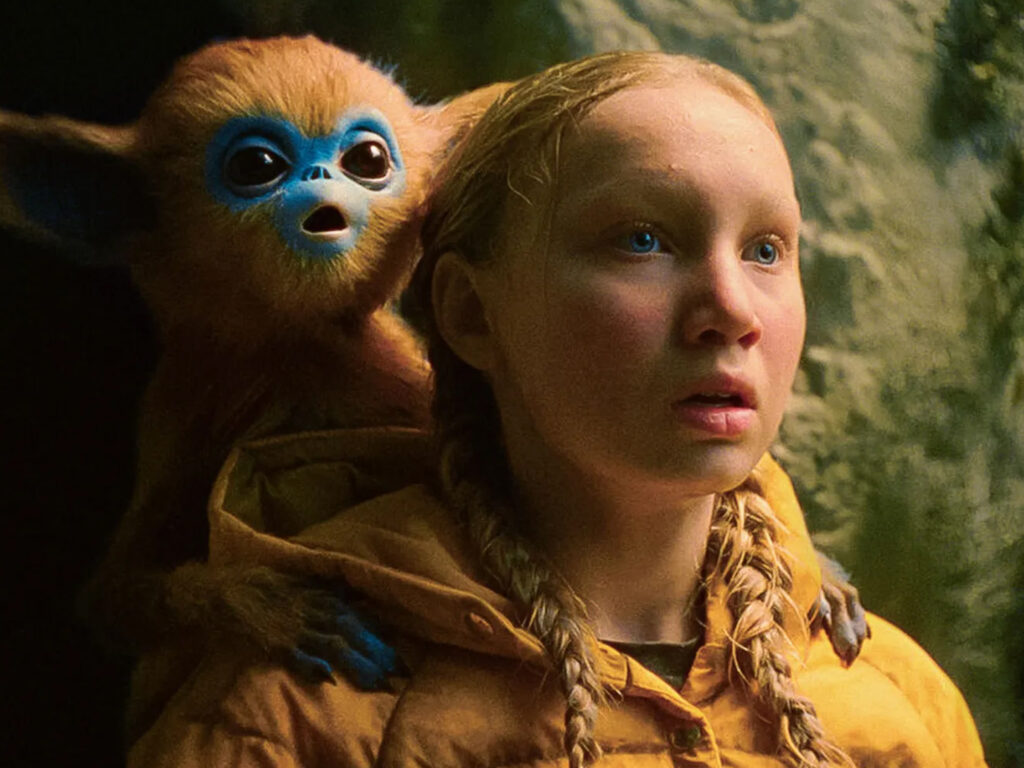 The Legend of Ochi review – well-crafted but tame family adventure
The Legend of Ochi review – well-crafted but tame family adventure
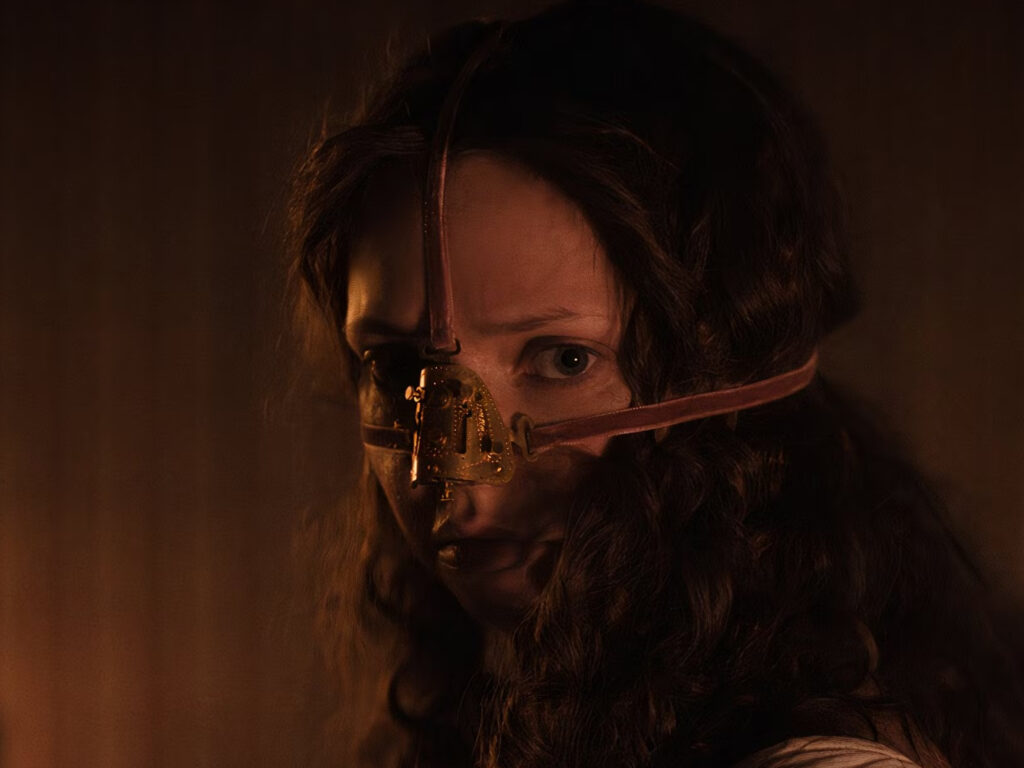 The Ugly Stepsister review – a mean-spirited Cinderella story
The Ugly Stepsister review – a mean-spirited Cinderella story
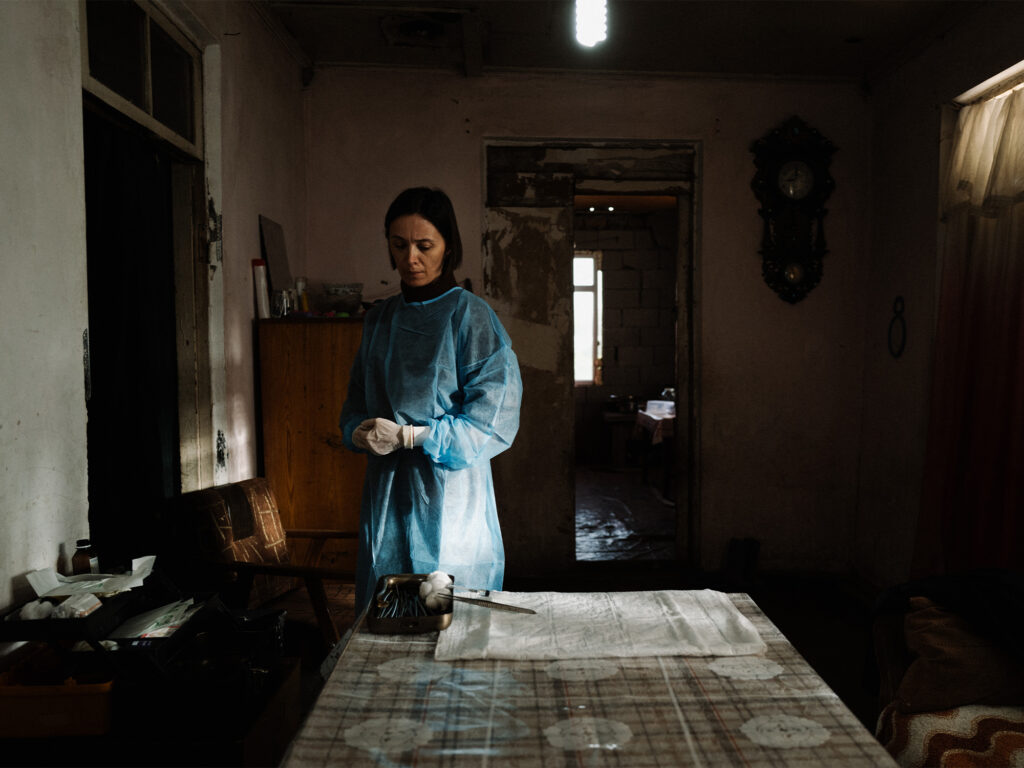 April review – eerily elusive, superbly acted and crafted
April review – eerily elusive, superbly acted and crafted
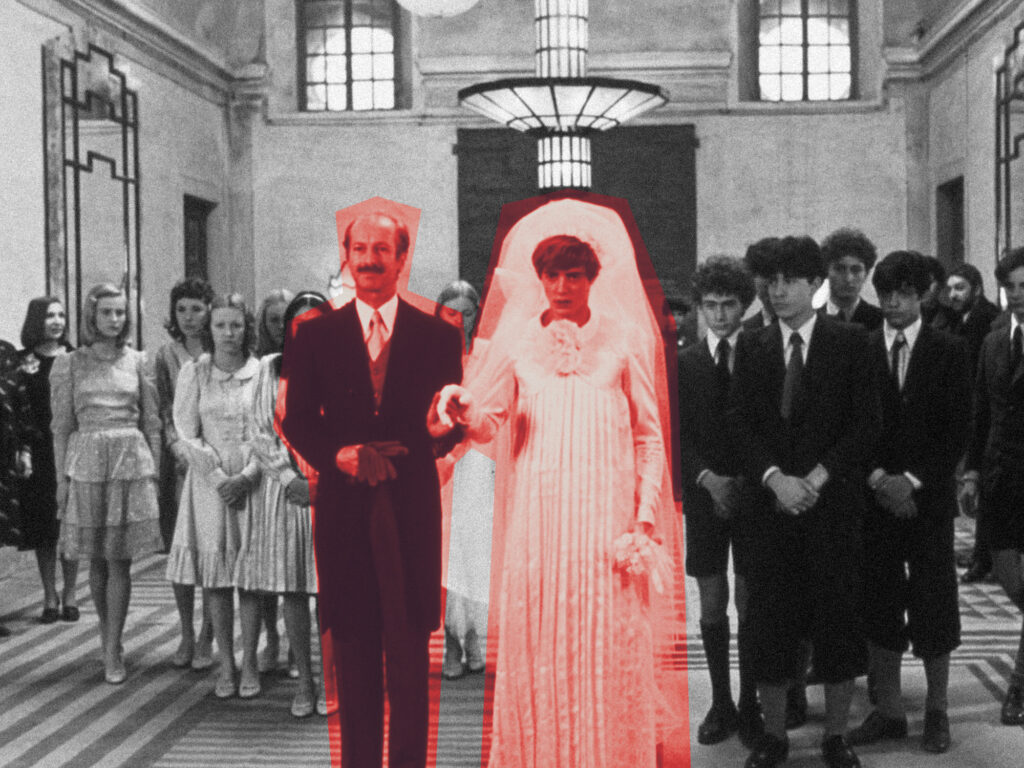 Spectacles of suffering and fascism in cinema
Spectacles of suffering and fascism in cinema
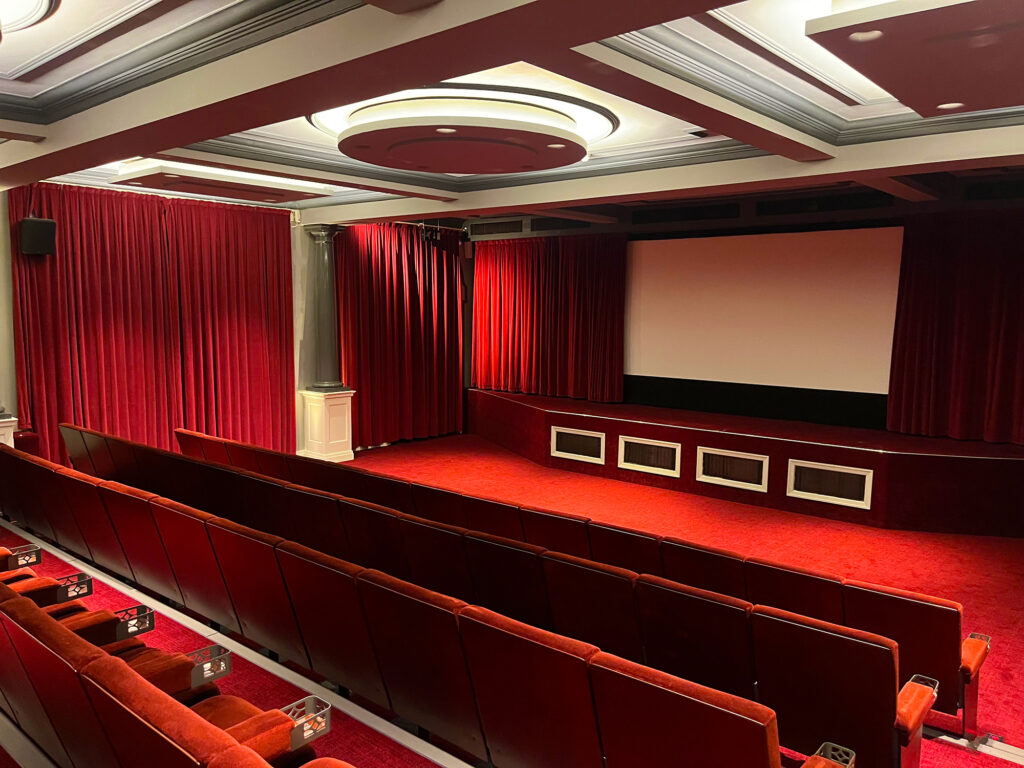 Inside the cinema hidden beneath a London pub
Inside the cinema hidden beneath a London pub
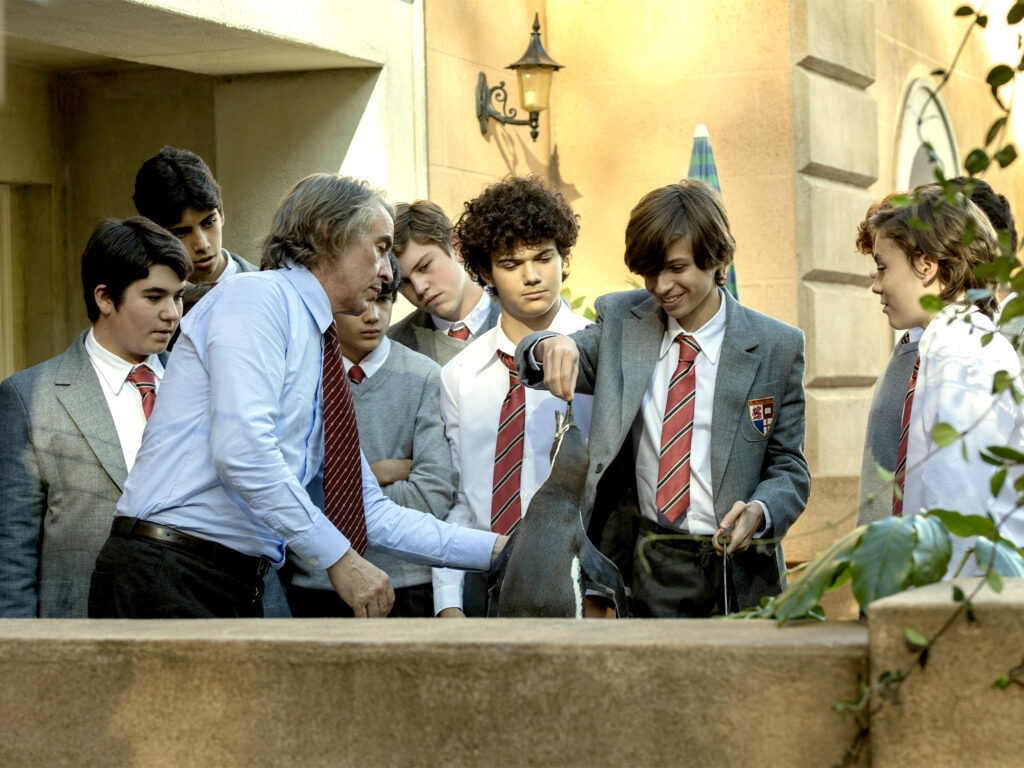 The Penguin Lessons review – think Dead Penguins Society
The Penguin Lessons review – think Dead Penguins Society
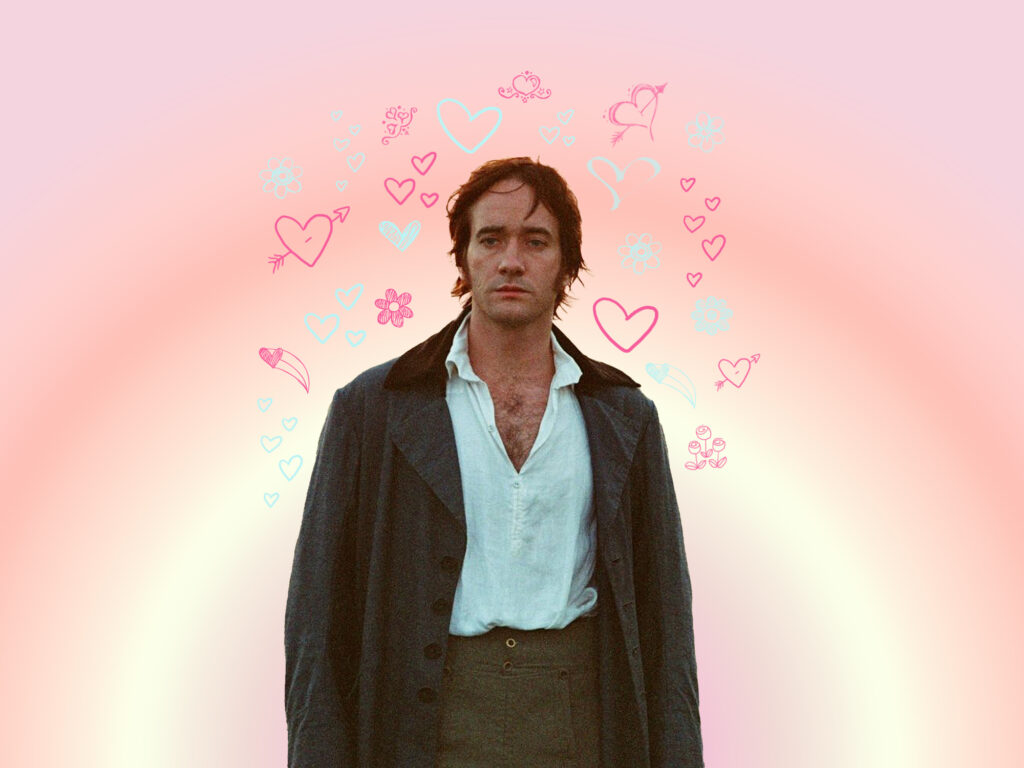 How Matthew Macfadyen remade Mr. Darcy
How Matthew Macfadyen remade Mr. Darcy



